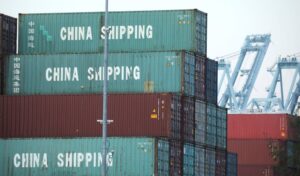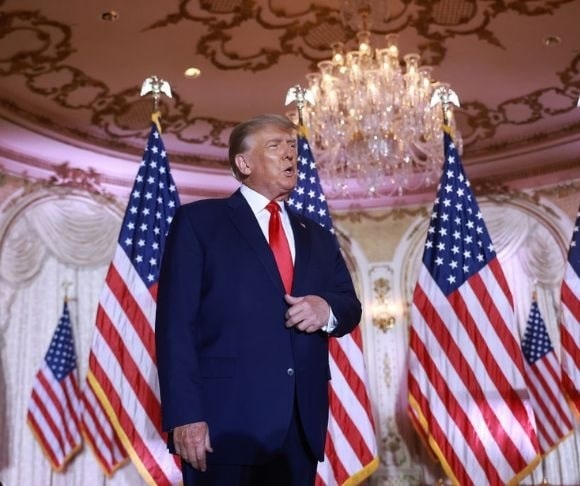During the 2016 presidential election campaign and throughout his term, President Donald Trump made China a crucial target for his economic agenda, accusing the world’s second-largest economy of ripping off America. Once more, it appears that his 2024 White House bid will replay an oldie but goodie; homing in on Beijing and blaming the Asian market for a myriad of problems. Will this resonate with the voters again, or will the old song and dance wear thin?
Donald Trump Fights Biden and China
The real estate billionaire mogul this week released his latest plans for a “sweeping pro-American overhaul of our tax and trade policy,” promising to bolster US production and diminish the nation’s dependence on China. In a campaign video, Trump slammed President Joe Biden, accusing him of “pushing the same pro-China globalist agenda that ripped the industrial heart out of our country.”
If he wins the presidency in 2024, Trump intends to revoke China’s most-favored-nation trade status and install a four-year initiative to phase out all Chinese imports of essential goods, such as electronics, pharmaceuticals, and steel. “This will include strong protections to ensure China cannot circumvent restrictions by passing goods through conduit countries – countries that don’t make a product, but all of the sudden they’re selling a lot of products. It comes right through China, right out of China, and right into our country,” he stated.
The meat and potatoes of his proposal are creating new rules to prohibit US companies from investing in China and restricting Beijing “from buying up America.” Under his administration, Trump noted, the government would eliminate federal contracts to businesses that outsource to China.
Trump plans to transition away from the Biden system that punishes US producers and rewards outsourcers and move toward a framework of rewarding domestic production and taxing foreign entities “who export American jobs.” This involves adopting “universal base-line tariffs” on most foreign goods and considering how much individual nations devalue their currencies. He also vowed that taxes on American companies would fall after his tariff system is instituted.
“This plan will be the linchpin of a new strategic manufacturing initiative that builds on my historical success in ending NAFTA [North Atlantic Free Trade Agreement],” he said.
The US-China Deficit

(Photo by Mario Tama/Getty Images)
In 2022, the US-China trade deficit soared to a record high of $948.1 billion, accounting for approximately 4% of GDP. This was driven by a $67.4 billion jump in the December trade gap between the two economic juggernauts. As Liberty Nation pointed out last month, the US has recorded an annual trade deficit with China every year since 1985. With officials reopening the Chinese economy, market experts anticipate that these figures will worsen over the next few years, especially with data suggesting that the US manufacturing sector is going through a notable slowdown.
The S&P Global Manufacturing Purchasing Managers’ Index (PMI) posted its fourth consecutive monthly decline, reaching a lower-than-expected 47.3 in February. Moreover, the Institute for Supply Management’s (ISM) Manufacturing PMI also experienced a fourth straight contraction, increasing to a smaller-than-expected 47.7 headline last month.
Will Trump Succeed?
It was no secret that the former president was tough on China, demanding concessions from President Xi Jinping and the rest of the Chinese Communist Party (CCP). His supporters would allude to the US-China trade deal in 2020, but three years later, the numbers suggest that it did not achieve what the previous administration intended. For example, the Peterson Institute for International Economics (PIIE) discovered that China purchased none of the additional $200 billion of US exports in the multi-phase pact. Other researchers, including the Federal Reserve Bank of Kansas City, aver that the dispute hurt farmers. Of course, a lot has happened since then, mainly the Chinese economy being much more vulnerable to geopolitical tensions and financial disagreements.




